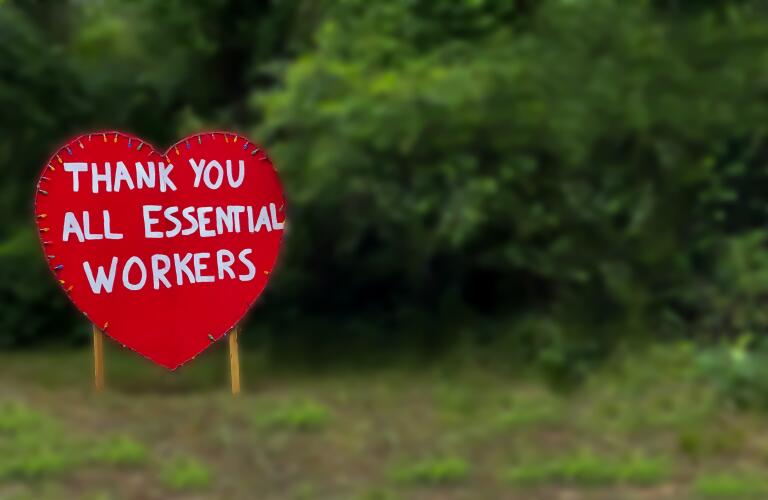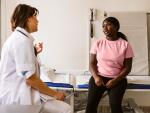
In the United States, the healthcare system employs more than 18 million people. These doctors, nurses, and first responders are on the front lines in the fight against disease, injury, disability, and death. They touch countless lives throughout their careers and are there for some of the best—and worst—moments of our lives.
By itself, healthcare is already a stressful profession. And by now, you’re probably also aware of the toll the COVID-19 pandemic is taking on healthcare workers. That’s why it’s so important to say thank you to medical staff and show that we are grateful for their care. Without these dedicated individuals, our health, and the health of our families and communities, is at risk.
It’s no secret healthcare workers face serious health and safety hazards throughout the course of the work day. Exposure to bloodborne diseases, chemicals, and drugs are possible. But these individuals unfortunately face other risks too, like workplace violence, exposure to x-rays, and possible injury from job-related duties like lifting patients.
Now, due to the pandemic, medical staff have had to make serious adjustments to their work and personal lives, such as increasing their number of hours at the hospital or living in self-isolation after caring for COVID-19 patients. Reductions in staff and the risk of infection are raising stress levels, and many report feelings of anxiety, fear, and depression.
It takes a special kind of person to rise to the challenge of healthcare work, even when there isn’t a global pandemic. Now more than ever, it’s important to thank healthcare workers and help them understand how much we appreciate their sacrifices and commitment.
Showing your appreciation for healthcare staff doesn’t have to be hard—even small gestures can help give these essential personnel the drive to continue on. You might try thanking medical staff in broader ways by:
- Advocating for medical staff. Personal protective equipment (PPE) is essential to provide safe care to patients, especially those with COVID-19. Contact your legislative representatives to tell them how each and every healthcare worker should have access to appropriate PPE.
- Reviewing your doctor online. If you received amazing care, don’t keep it a secret. Share your appreciation with the world by writing a review on a doctor rating site like Healthgrades.com. With your five-star review, you’re writing a thank you note to your doctor while also helping other people benefit from the same quality care you received.
- Arranging for take-out or delivery. You may need to work closely with unit managers to ensure the delivery of food from outside sources is acceptable, but treating medical staff members to a meal can help boost morale.
- Donating supplies. Hospitals around the country are still in need of supplies, such as gloves, hand sanitizer, and masks. If you have any of these available, consider donating them.
- Some healthcare organizations, such as the Red Cross, are still seeking volunteers to assist with COVID-19 relief efforts and other common problems. Volunteering is a great way to help take some of the stress off medical personnel.
If you have a personal relationship, you can also thank nurses, doctors, and any other healthcare staff member directly by:
- Cooking a meal. You’ll need to determine if the nurse, doctor, or first responder you know is comfortable with this, but cooking a meal for a healthcare worker can save them time and effort. Just be sure you haven’t been exposed to COVID-19 before doing so.
- Dropping off supplies. Many healthcare workers don’t have much time to shop for groceries and other household supplies. Buying these items and dropping them off can help ensure they don’t run out of the essentials.
- Helping with childcare or eldercare. Many healthcare workers are part of the “sandwich generation” and are responsible for taking care of their children and their elderly relatives in addition to their patients. Looking after children or the elderly can help give workers a break and allow them to relax and recharge.
There are many ways you can show how you’re grateful for healthcare workers. Any gesture of appreciation can help to improve mood and promote resilience among medical staff, especially those dealing with challenges like COVID-19. Now, more than ever, healthcare workers need to know just how much we appreciate and thank them.







